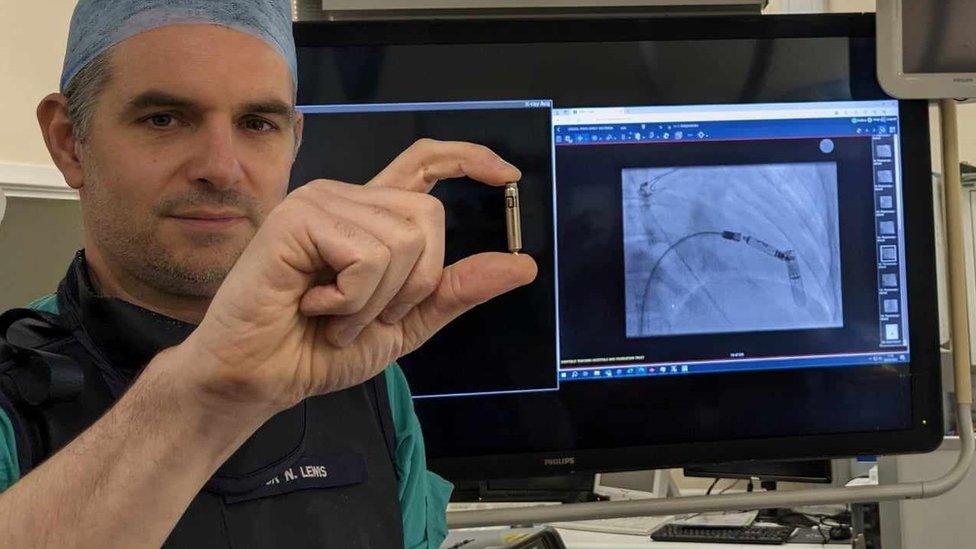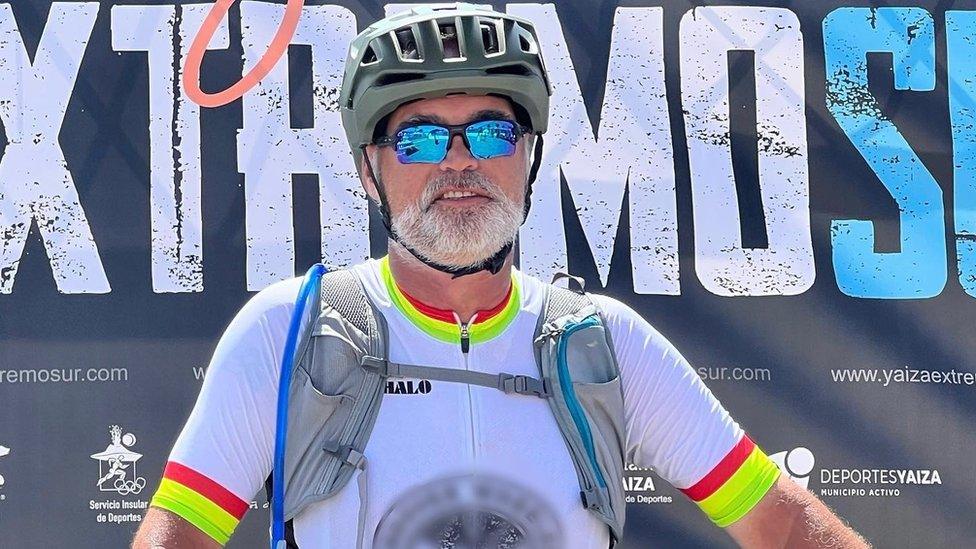Sheffield doctor praises 'game-changing' new-style pacemaker
- Published

The leadless pacemaker is smaller than an AAA battery and can be inserted directly into the heart chamber
A new style of pacemaker that can be inserted directly into the heart has been praised by a Sheffield doctor.
Traditional pacemakers use leads which sit in veins and deliver an electronic pulse when they sense abnormalities.
But the new device did not have wires and so was smaller and lasted longer, Dr Nigel Lewis, from Sheffield Teaching Hospitals NHS Foundation Trust, said.
The new pacemaker, smaller than a triple-A battery, was "game-changing", Dr Lewis added.
The device has been designed to treat appropriate patients with slow heart rhythms.
Emily Coles, from Rotherham, one of the first people in the north of England to have one fitted, had previously suffered blackouts where her heart had stopped for several seconds.
While the 24-year-old's condition, called sinus arrest, rarely leads to death, it significantly impacts quality of life.

Emily Coles is one of the first people in the north of England to get the device fitted
Ms Coles, a nurse, said: "It took away my independence and my confidence and I was unable to do the things I love and had taken for granted."
"Not being able to drive had a big impact on my life as I work 12-hour shifts," she added.
"Being told that I could collapse at any point was not something I wanted to hear as I am a young person who likes to keep fit and healthy."
Cardiologist Dr Lewis said: "The difference with this device is it's really game-changing in the fact it can last so much longer than a normal pacemaker - up to 25 years in someone like Emily."
There was a lower risk of complications over a patient's lifetime, "especially in young people", he added.
However, the leadless pacemaker was unlikely to completely replace the traditional device as some people were not suitable for it, Dr Lewis said.
But Ms Coles said that while her life "had been on hold" since she collapsed in September, her future now looked "very different".
"I will also be able to exercise again and reinstate my gym membership," she said.
"I can look forward to doing the things I never questioned I might not be able to do."

Follow BBC Yorkshire on Facebook, external, X (formerly Twitter), external and Instagram, external. Send your story ideas to yorkslincs.news@bbc.co.uk, external.
Related topics
- Published3 November 2022
